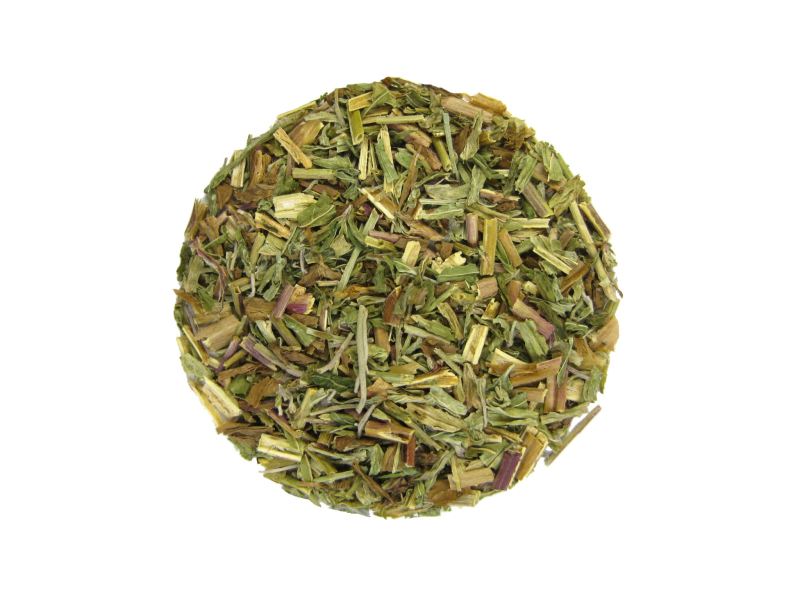Packaging: 50g (or 500g & 1kg) containing Epilobium.
(The price includes VAT.)
Other Names: Epilobium ciliatum, Smallflower Hairy Willowherb.
This herb thrives at altitudes of 800m to 1200m, near rivers (both surface and underground), lakes, and springs, generally in areas with high soil moisture.
Historically, Epilobium (Willow) had little significance and literature as a medicinal herb until its positive effects on prostate health were highlighted by the famous Austrian herbalist Maria Treben in the 20th century. Since then, it has become highly sought after in Austria, Germany, and America.
In modern herbal medicine, Epilobium is considered to have antibacterial, anti-inflammatory, antimicrobial, and antioxidant properties. Herbalists primarily use it for treating benign prostatic hyperplasia, cystitis, and nephritis. Its beneficial action on early-stage benign prostatic hyperplasia was reported in an article in the scientific journal "Pharmaceutical Herbs" in 1991, noting that its anti-inflammatory action is ten times greater than the synthetic substance indomethacin. Laboratory studies at the Prostate Research Center in Vancouver have shown that very small concentrations of the herb negatively affect the activity of the enzymes 5-alpha reductase and aromatase, which are involved in the early stages of benign prostatic hyperplasia.
Epilobium is thought to assist with urinary tract infections, bronchial infections, mucous colitis, and irritable bowel syndrome. It is also considered beneficial for diarrhea and incontinence in both men and women.
Epilobium aids the urinary system in conditions such as incontinence and urinary tract infections. It has significantly helped women in addressing menstrual disorders and uterine bleeding.
The leaves can be applied as a poultice for oral ulcers.
Epilobium is traditionally used to treat enlarged prostate due to its anti-inflammatory properties. It is beneficial for gastrointestinal disorders, kidney and bladder conditions, rectal bleeding, menstrual disorders, cystitis, urinary infections, diarrhea, oral lesions, and irritable bowel syndrome. Some users have also found that the plant helps combat urinary incontinence.
Astringent:
As a topical application, Epilobium can help soothe skin disorders such as minor burns, rashes, ulcers, and skin irritations.
Antioxidant:
The high levels of antioxidants in Epilobium contribute to fighting bacteria commonly associated with skin conditions.
Other Uses:
Epilobium extract is commonly used in a wide variety of cosmetics, creams, shampoos, and baby wipes, primarily due to its astringent properties.
Epilobium is known for its role in prostate health, benign prostatic hyperplasia, and prostate cancer. It has anti-inflammatory effects throughout the urinary tract and is also used for skin conditions such as eczema, psoriasis, and fungal infections.
Origin: Greece, Imathia Region (cultivated)
Storage: Keep in a cool, dark place (5°C – 15°C)
Preparation:
1 tablespoon of powdered Epilobium (or a small pinch of uncrushed) is added to a container with 1 cup of boiling water, left to steep for 10-15 minutes, and then strained before use. Consume up to twice daily—once in the morning on an empty stomach and once in the evening before bed. Avoid its use in cases of pregnancy or breastfeeding.





